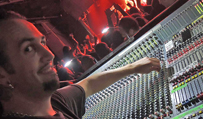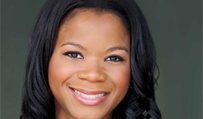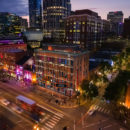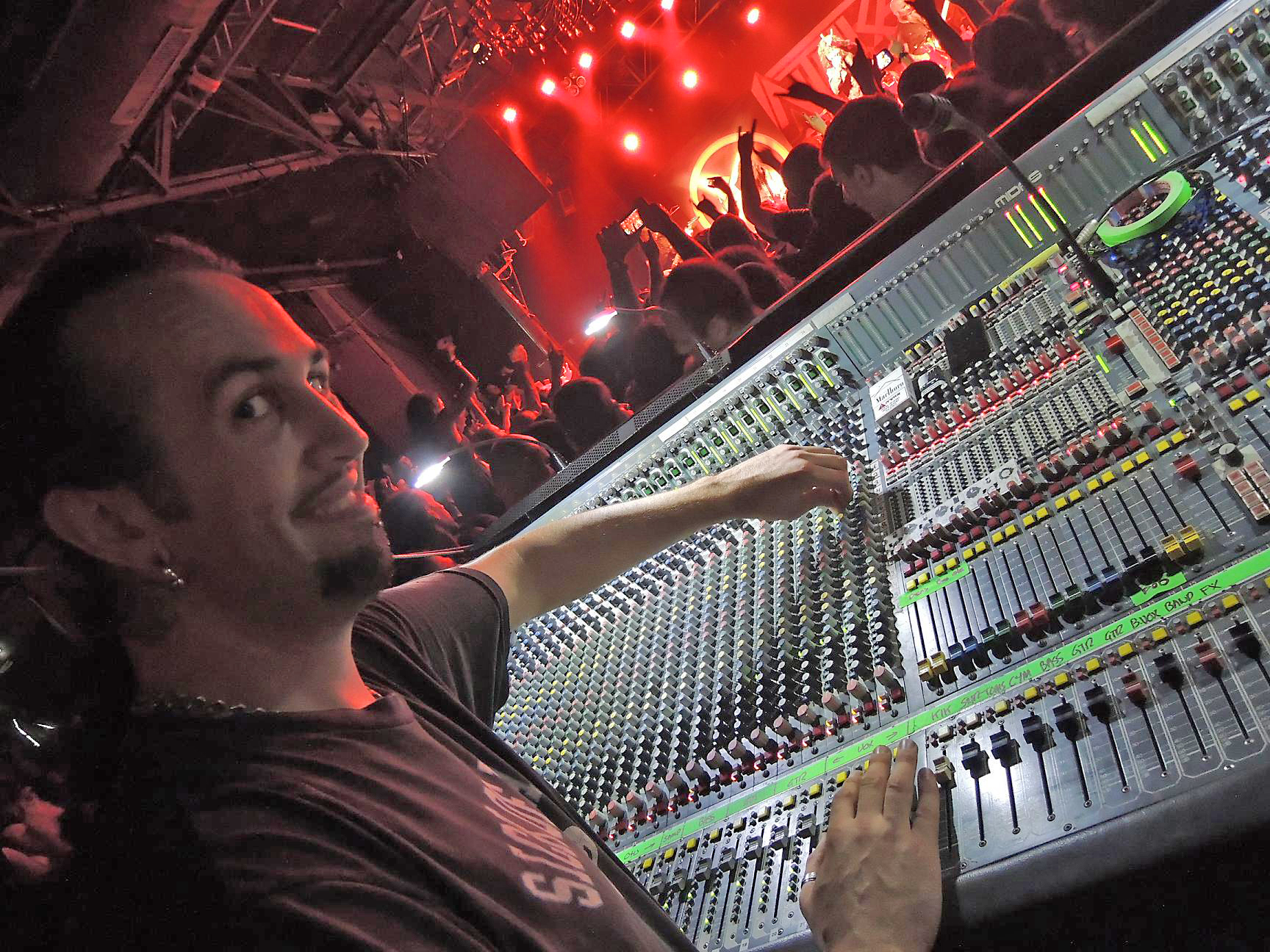 London-based front of house (FOH) and recording engineer James Dunkley got his start as a guitarist. He soon realized that, for him, sound engineering held more promise as a career. Dunkley recorded demos for a number of bands and then landed work with a local music venue. He’s since done FOH for several bands, primarily metal, including Anthrax, Fun Lovin’ Criminals and Amon Amarth. When MC spoke with him, he was preparing to tour with Anthrax once more.
London-based front of house (FOH) and recording engineer James Dunkley got his start as a guitarist. He soon realized that, for him, sound engineering held more promise as a career. Dunkley recorded demos for a number of bands and then landed work with a local music venue. He’s since done FOH for several bands, primarily metal, including Anthrax, Fun Lovin’ Criminals and Amon Amarth. When MC spoke with him, he was preparing to tour with Anthrax once more.
One of the biggest unknowns associated with FOH is the variability in venue acoustics and consoles. Accordingly, engineers often don’t know what challenges they’ll face. “There’s a place in York [England] where the acoustics of the room and the design of the PA are such that the actual volume on stage overpowers everything,” Dunkley says. “I work mainly with metal bands. The sound of a massive Swedish drummer pummeling the hell out of his cymbals removes any possibility of bringing a vocal through. You can talk about things like perspex screens around the drums, but that’s not the sort of thing that band does.
“It’s not always a case of trying to turn everything up,” he continues. “Sometimes it’s subtractive mixing. One thing I always do is have everything apart from the lead vocal on a VCA, or these days, a DCA. It’s a classic festival rule: when you haven’t linechecked or soundchecked, you take the entire band to minus three and start with the vocal at zero. When they come on, you know that the vocals are going to come through. Then, if you’ve got room, you can bring the band in. The vocals always have to be the main thing. It’s just allowing room to let that come through.”
FOH is a career rife with challenges: equipment is frequently in transit, there isn’t always time for a soundcheck and then there are festivals and the intricacies of putting on an outdoor show. “You never know what’s going to happen until they hit the stage,” Dunkley explains. “You’ve had no soundcheck, you’ve got no control over the wind, you’ve not really heard the system. It’s a case of fly by the seat of your pants and go for it after a 20- or 30-minute changeover. I often spend more time in the audience checking the sound than I do at the desk.”
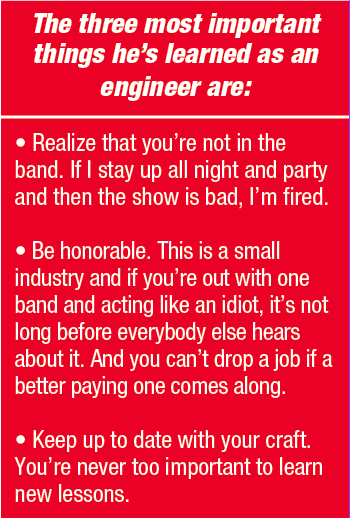 Dunkley uses a number of Waves Audio tools, notably their H-Delay. “You think that one delay isn’t going to sound that different from another,” he observes. “But when you load the H-Delay, there’s a noted difference; it sounds really good. I also use their C4s quite a bit; their 4-band/multi-band compressors. I use the H-Comp a lot as a drum buss. Because they’ve got the mix control on it, you can have parallel buss compression within the same channel. If I wanted to do parallel compression on a drum kit, rather than having two stereo groups totaling four groups (two compressed, two not), you just set the mix control where you want it and it’s there. I use their Renaissance Reverb for everything.”
Dunkley uses a number of Waves Audio tools, notably their H-Delay. “You think that one delay isn’t going to sound that different from another,” he observes. “But when you load the H-Delay, there’s a noted difference; it sounds really good. I also use their C4s quite a bit; their 4-band/multi-band compressors. I use the H-Comp a lot as a drum buss. Because they’ve got the mix control on it, you can have parallel buss compression within the same channel. If I wanted to do parallel compression on a drum kit, rather than having two stereo groups totaling four groups (two compressed, two not), you just set the mix control where you want it and it’s there. I use their Renaissance Reverb for everything.”
To fledgling engineers, he recommends practical experience over a formal education. “It seems that everybody who graduates from an engineering school goes on either to teach or to start their own school,” he observes. “Rather than spending money on that, get some equipment and make some free demos.”
Contact Robert Clyne / Clyne Media, Inc., 615-662-1616, [email protected]

